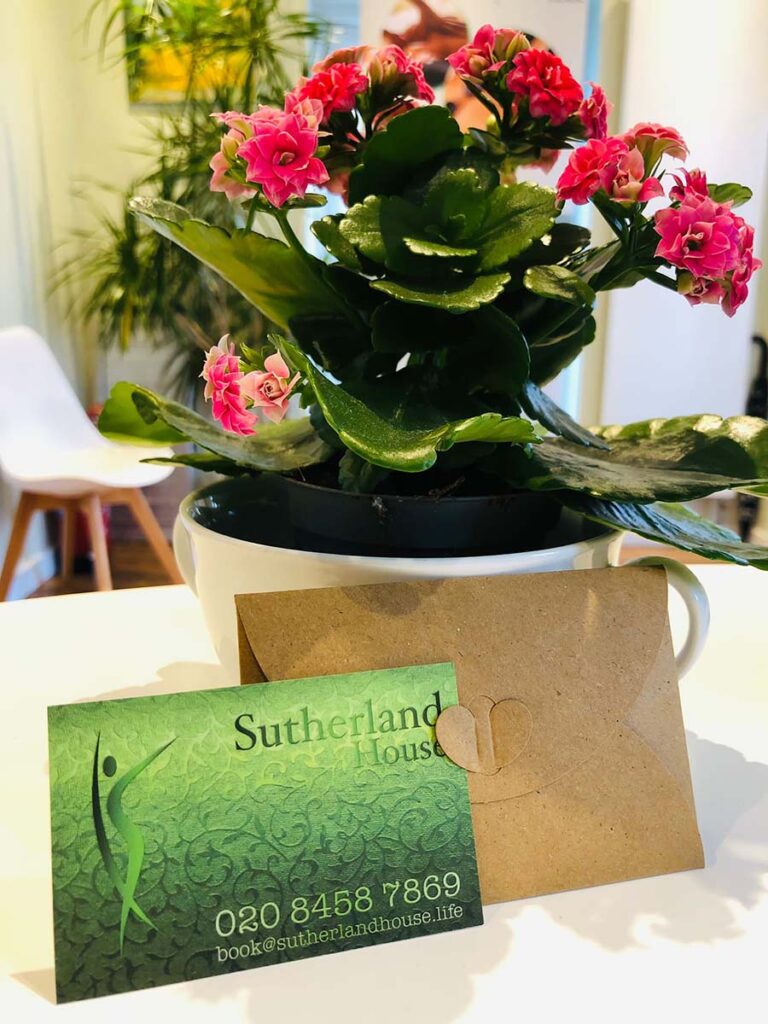We use cookies to improve your experience.
Learn more.
By Marina Townsley
Spanish flu, Hong-Kong flu, bird flu, swine flu…. Influenza comes in different guises as the RNA viruses constantly mutate and turn into different strains. The seasonal influenza vaccine only contains three strains of type A or type B influenza, which WHO health officials select each year as the most likely influenza strains that will spread around the world.
However, many influenza strains and most cases of flu-like illness that occur during a flu season are not associated with type A or type B influenza virus, which means that vaccination will not always be effective. The two antiviral drugs used in the UK to treat flu (Tamiflu and Relenza) are only effective is used within 48 hours after the initial infection.
The trouble is that by the time you are aware of the first flu symptoms and make an appointment with your GP, he will be reluctant to prescribe these antivirals as the crucial 48 hours would have elapsed by then. Tamiflu and Relenza are becoming less effective as they have been in use for some time now and flu viruses begin to develop resistance to them.
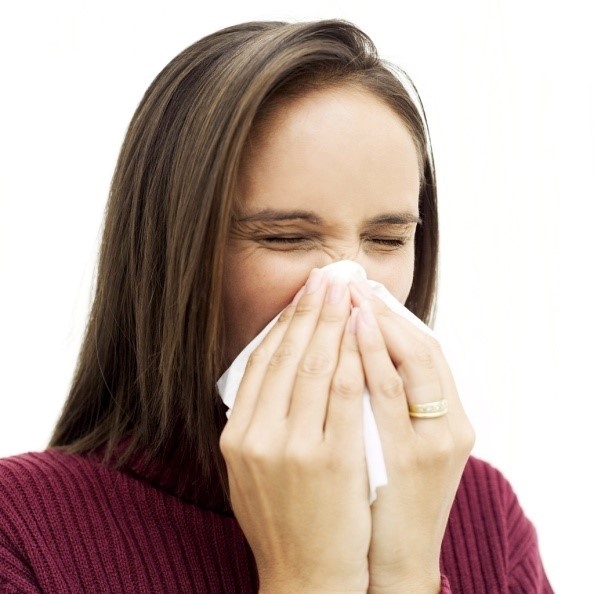
The virus is airborne and spreads through the droplets from coughing and sneezing of the infected persons. It’s important to use a tissue or cover your nose and mouth, especially if you use public transport. Washing your hands or using an alcohol based steriliser will decrease the likelihood of spreading a virus to or picking it up from other people.
Flu is debilitating. It overtakes you suddenly, with chills and fever, extreme fatigue, blocked or runny nose, cough, headache, sore throat, loss of appetite, aches and pains all over the body including joints. It can last for 2-3 weeks and may cause such complications as bronchitis, pneumonia, reactive arthritis, sinusitis, ear infections or post-viral fatigue.
The most important thing to avoid a possible complication is to allow your body to rest. Do not push through extreme tiredness that accompanies flu, let your immune system mobilise its resources to fight off the unwelcome invader. Flu is a perfectly justifiable reason to have a break from the daily pressures and take it easy for a few days.

Get some lime tree blossom tea (Tilia cordata) in your local health food shop, Revital or Neal’s Yard and brew a fragrant cup of herbal tea. You will need to have 4-5 cups a day. Lime blossom tea is a traditional flu remedy used in Russia almost in every household. It belongs to a group of herbs known as diaphoretics (they open up the pores in the skin, induce sweating and expel the virus). Herbs like St. John’s wort and Lemon balm have demonstrated good antiviral properties, so you can mix them in with the lime blossom and prepare a potent antiviral tea.
Another herb traditionally used in Siberia to increase stamina and resistance to both viral and bacterial infections as well as prevent fatigue is Rhodiola rosea (Golden root). It is an adaptogen which allows the body to adapt and improve its response to both physical and mental stress.
In winter months I always have at hand a bottle of tincture containing a mix of antiviral and immune-stimulating herbs which may include andrographis, cat’s claw, Echinacea, ginger, elderberry and oregano to name a few.
This kind of tincture is more specialised and you will need to see a qualified herbalist to have it mixed for you, as some of these herbs are not sold directly to the public.
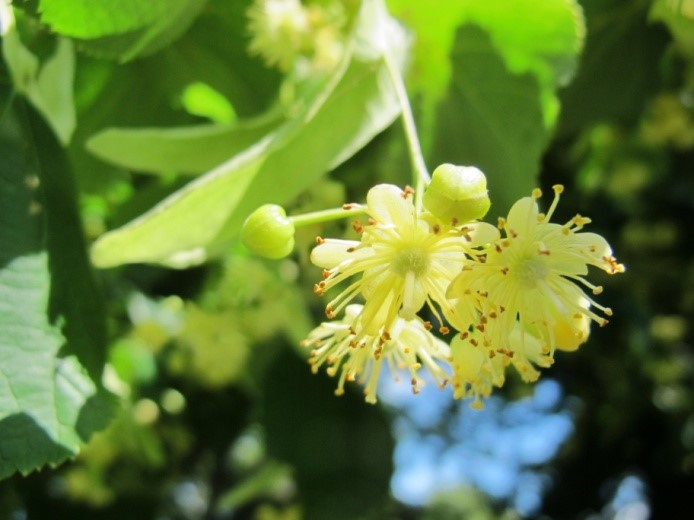
Eat raw onions and garlic if you feel the onset of a cold or flu. Chicken broth will be both nourishing and healing. When you have no appetite, sometimes the only thing that will go down well is soup – whether vegetable or meat broth. If your throat is sore, you can chew a bit of propolis and leave it in your mouth for a couple of hours.
Propolis is a resin-like material from the buds of poplar and cone-bearing trees collected and used by bees to disinfect their hives. It has antibacterial, antifungal and antiviral properties, and two promising German studies affirmed at its immunostimulating effects. It is also effective against cold sores and can be applied directly to them.
Don’t use propolis if you are allergic to bee products including honey as well as conifers, poplars, Peru balsam, and salicylates. A quick reminder about the importance of vitamin D3 for our immune health. We live in a country with little sunshine and therefore are not making enough vitamin D in our skin as it is produced from cholesterol under the influence of sunlight.
It is found in good quality cod liver oil (for example, Blue Ice by Green Pastures), oily fish, egg yolk and butter. It activates the body’s T-cells that seek out and destroy any invading bacteria and viruses. If vitamin D levels in the body are low, T-cells are not primed to recognise the invader and remain ‘naive’. According to the Mayo Clinic, an adult needs about 10,000 IU of vitamin D3 daily.
Essential fatty acids, especially the omega-3 fats, are ‘essential’ because we need them but do not produce them in the body. They must come from the diet. However much I enthuse about the virtues of oily fish to my patients, the truth is that most Brits do not like fish unless it is discreetly covered in bread crumbs or batter and hidden from sight.
Despite living on an island surrounded by water, they shy away from fish and seafood alike. So if you are not an oily fish lover, supplement the omega-3 EFAs which are found in fish oil, cod liver oil or krill oil. The best vegan source is flaxseed oil which undergoes a conversion process in the body and turns into omega-3 EFAs.
The health benefits of flaxseed were known to the Ancients and by the 8th century the French King Charlemagne even passed a law requiring his subjects to consume it.
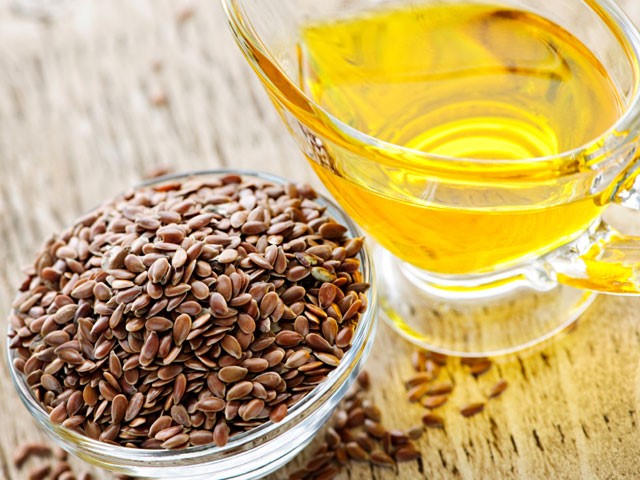
Why are omega-3 EFAs are so important during a bout of flu? Our immune system generates a lot of inflammatory substances during its fight against a virus, using them as weapons to deactivate and destroy it. However, if the immune response is overly active, intense and long lasting, it can damage the cells of the host. The most unexpected statistic of the first world war period reveals that more people died in the Spanish flu epidemic than fell in battles and perished in the trenches.
Usually, flu victims are the elderly and the children, but in 1918 those who died of flu were previously healthy young adults. The recent explanation of this fact is that they died as a result of an overactive immune response known as cytokine storm. The omega-3 EFAs are crucial in calming down and eventually switching off this intense counter-attack of our immune system against the virus. Fish oil and flaxseed oil should be kept in the fridge, away from sunlight. They become very dangerous once they go rancid.
When coming down with a virus, avoid sugar and processed foods. Sugar impairs the immune function within an hour of consuming it. Be aware that sugar can be hidden in foods you may not suspect, like ketchup, canned soups, cereals and commercial fruit juices.
Hot lemon drink has been used as a flu remedy since Roman times. It is full of antiviral vitamin C. Vitamin C is destroyed by heat above 70 Co so it is best to pour hot but not boiling water into your lemon drink.
The same applies to rose hip tea also very rich in vitamin C. Lemon oil contains various antibacterial, antiviral, antifungal and anti-inflammatory constituents. It also acts as an expectorant.
To make a flu-fighting lemon drink, chop 1 lemon (with zest and pulp) into a cup of hot water. Inhale the steam while the lemon steeps for a few minutes. Strain, add Manuka honey and enjoy. Drink 3-4 cups a day while you are ill.
This is by no means an exhaustive list of homemade remedies, supplements and herbs which are useful in the fight against flu.
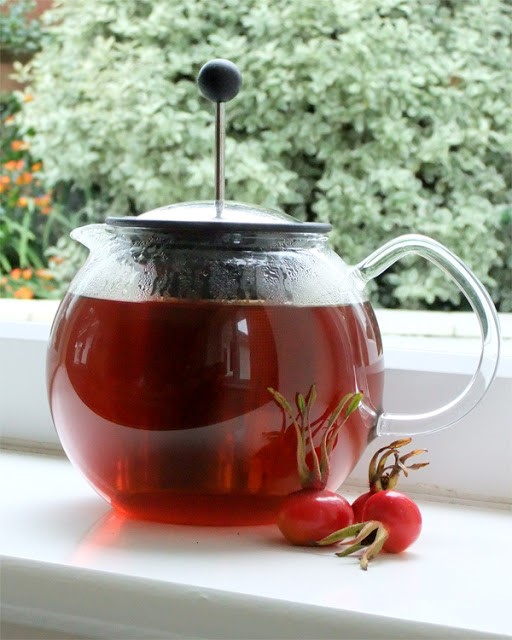

written by
Naturopath
Nutritional Therapist & Herbalist
Dip CNM mBANT NTCC CNHC ANP AMH
FSM Practitioner
To book an appointment, or get in touch with a practitioner, call
Or book an appointment online
